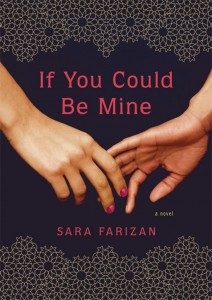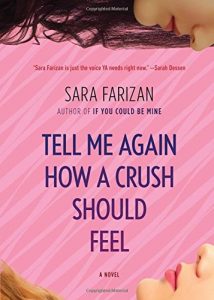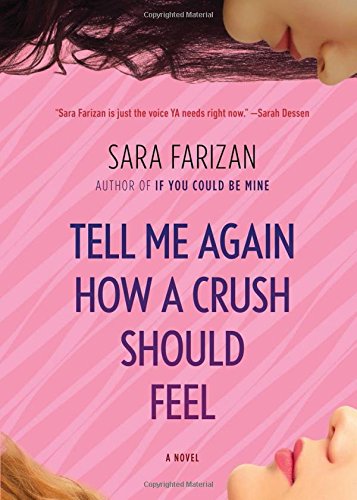Childhood friends Sahar and Nasreen are desperately in love, but living in Tehran, their love is forbidden. Nasreen wants to lead the life her parents want for her, to marry a good man with a good job who can take care of her, even if it means she has to give up her childhood sweetheart. Sahar can’t lose Nasreen, so she considers transitioning into a man, as that is acceptable in their culture. It’s a novel filled with teen angst, questions of gender and sexuality, coming of age and deciding how to stay true to yourself while holding on to the people you love.
When it comes to the discussions of trans people and transitioning, it’s hard for me to speak clearly to it because that’s not my own experience. But throughout the novel, the discussions explicitly state “transsexual,” which I’m not sure if it’s an outdated term or if it’s specific to Iranian culture on the subject. Because in this culture, trans people are acceptable as it is seen as “fixing” the problem of homosexuality. There’s a lot to unload in that frame of mind altogether because lumping gender and sexual orientation into one doesn’t allow for nuance.
There’s also an interesting division within the LGBTQ+ community. Sahar’s gay cousin, Ali, introduces her to Tehran’s queer community to show her she’s not the only one and there’s nothing wrong with her. But Sahar is resistant to the idea that she is a lesbian. Moreover, there’s another trans character she meets who shows repulsion toward gay people, calling it unnatural.
Farizan creates dynamic, imperfect characters in Sahar and Nasreen. It would be easy to categorize them as overdramatic teen girls and to get easily annoyed with their personalities. At times, Sahar becomes frustrating, even as she acknowledges her flaws and irrationality. But through all that emotion, it’s a delight to see her go through the growing pains and become firm in her identity.
I admit I found Nasreen harder to sympathize with. She’s not a bad person, but she is more selfish and self-centered in comparison to Sahar. However, she’s never condemned for her desire to live comfortably. She’s not the kind of person to fight her role as a woman in her society, and it doesn’t make her weaker or inferior. She simply chooses to survive the best way she knows how.
That doesn’t mean I think she deserves Sahar. Nasreen’s treatment of her best friend is never justified by her desire to survive and live a comfortable life. It’s this complex and messy narrative that makes the novel a compelling read. Nothing’s black and white. Characters aren’t necessarily good or evil. There are no right answers.
SPOILERS AHEAD:
Sahar and Nasreen don’t end up together. It’s a heartbreaking moment for Sahar, but it feels like the right choice for the story. However, there’s a spark of hope at the end as the novel wraps up with Sahar meeting a new girl at college.






